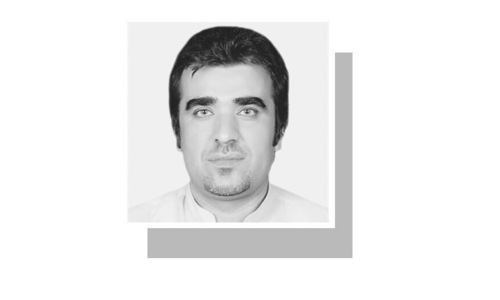“SHOCKING, unjustified anti-Americanism will not resolve [Pakistan's] problems,” said US Secretary of State Hillary Clinton in New York on Friday. The fact is, however, that anti-Americanism in Pakistan is not at all shocking, and much of it is not unjustified. Ms Clinton's remarks came as two Pakistanis were gunned down in broad daylight in Lahore traffic by an American whose work here remains a mystery. A third man was run over in the ensuing chaos when he was caught in the path of a speeding American consulate vehicle. That driver has disappeared, and the US has insisted on blanket diplomatic immunity for the gunman. This has not gone down well in Pakistan for obvious reasons. Questions linger about Raymond Davis's work here, exacerbated by suspicions about the presence of American security contractors in Pakistan and the reputation such individuals developed in Iraq. Even his exact diplomatic or consular status remains unclear. In this context, the US stance has come across as an arrogant defence of a suspected murderer simply because he is American, and although a US congressional delegation's visit here after her speech has helped ease tension on the issue, Ms Clinton would have done well to take that into account.
But this incident is simply one example of the double standards that inflame anti-American sentiment among liberals and the right wing alike. Drone strikes arguably violate America's concern for human rights. Support for the Zia and Musharraf regimes and the blind eye turned to Zulfikar Ali Bhutto's hanging violated its constant call for democracy. And while American officials have expressed regret over abandoning the region after the war against the Soviets in the 1980s, memories of the variable American policy here over the last three decades will not go away easily. While it may be justified for America to safeguard its own interests, it should not be surprised at the anger of those who bear the brunt of the fallout.
This is not to say that Pakistan has had no role to play in fuelling anti-American views. Some elements of the state have promoted these for their own benefit, and arguably are doing so today by delaying a verdict on the question of Mr Davis's immunity. Politicians, too, have exploited the sentiment for popularity, with little concern for the fact that by doing so they are feeding extremist views and squeezing the space for moderate voices in Pakistan. But what would take the teeth out of such efforts is a consistent, long-term American policy towards the region, one in line with the values the US upholds for itself.









































Dear visitor, the comments section is undergoing an overhaul and will return soon.